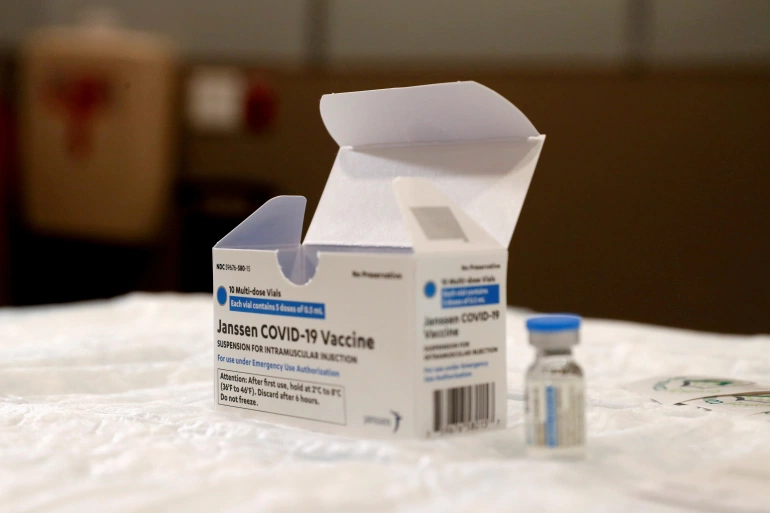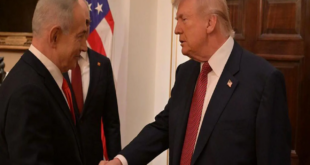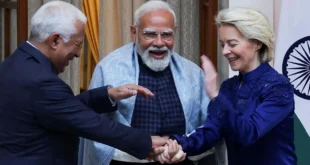
The European Union’s medicines regulator on Tuesday said it had found a “possible link” between Johnson & Johnson’s (J&J) COVID-19 vaccine and the development of rare blood clots in a small number of recipients, but concluded the shot’s overall benefits outweigh any risks associated with its use.
The European Medicines Agency (EMA) said its safety committee decided that a warning about unusual blood clots with low blood platelets must be added to the vaccine’s labels, just as the regulator has also required of rival vaccine maker AstraZeneca, whose own jab was found by the agency last month to also have a “possible link” with rare blood clots.
The EMA found that all instances of clotting had occurred in adults under 60 years, mostly women, within three weeks of vaccination with J&J’s single-shot vaccine. The agency said these rare blood disorders should be considered as “very rare side effects of the vaccine”.
It said all available evidence, including eight cases that were reported in adults who had received the jab in the United States, including one death, had formed part of its assessment.
The watchdog also said that most clots among recipients had occurred in the brain and abdomen, as was the case with AstraZeneca’s shot, which is also being studied for similar rare clotting problems.
Rare US blood clot cases
The EMA’s update came after J&J last week halted the European rollout of its one-dose shot in response to a recommendation by the US Food and Drug Administration (FDA) that officials pause its use while the rare blood clot cases were examined.
The cases were reported out of more than seven million doses administered in the US as of April 13, the EMA said.
J&J had advised European governments to store their doses until the EMA issued guidance on their use, and the US-based pharmaceutical giant is reportedly prepared to resume the deployment of its vaccine following the agency’s review.
The company has said it would aim to deliver 55 million doses to the European Union, as contracted, by the end of June. It is one of four COVID-19 vaccines authorised for use in the bloc.
European Medicines Agency backs use of single-dose COVID-19 shot, saying its overall benefits outweigh risks.
But widespread use of the shot among its 27-member states has not yet started, with the recent delay posing a fresh setback to already faltering vaccination efforts in the union, in particular, and global efforts to tackle the coronavirus pandemic.
The EU’s choppy vaccine rollout has been plagued by problems including poor coordination between national and regional authorities, supply shortages, concerns over the AstraZeneca shot and a damaging contractual row with the Anglo-Swedish company.
‘Suspicion is rising’
With the AstraZeneca vaccine, scientists in Norway and Germany have suggested that some people are experiencing an abnormal immune system response, forming antibodies that attack their own platelets.
It is not yet clear if there might be a similar mechanism with the J&J shot.
But both the J&J and AstraZeneca vaccines, as well as a Russian-made COVID-19 vaccine and one from China, are made with the same technology.
They train the immune system to recognise the spike protein that coats the coronavirus. To do that, they use a cold virus, called an adenovirus, to carry the spike gene into the body.
“Suspicion is rising that these rare cases may be triggered by the adenovirus component of the AstraZeneca and J&J vaccines,” Eleanor Riley, a professor of immunology and infectious diseases at the University of Edinburgh, told the Associated Press news agency.
Riley said that while more data was needed, “it remains the case that for the vast majority of adults in Europe and the US, the risks associated with contracting COVID-19 far, far outweigh any risk of being vaccinated”.

SOURCE: NEWS AGENCIES









